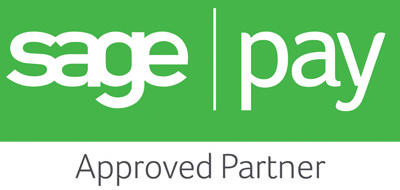How B2B Marketing is Becoming Emotionally Intelligent
B2B marketing is often seen as a different beast to B2C marketing, but recently the lines have become very blurred, as people embrace technology to stay connected to their friends, family and workplace even after hours.The popular activity of scrolling on your phone during a commute means that once people leave work they're still in the work mind-set, but now they're also transitioning to a more receptive, relaxed mind-set. When a B2B ad appears on their feed, if it can tap into the emotional benefits of that product or service it will land with the potential customer in a more efficient way than if it appeared as a very staid, typically business oriented advert.
One early quote which summed up the idea of effective advertising is “customers don't want to buy ¼ inch drill bits; they want to make ¼ inch holes”. Instead of focusing on the product, the advert should focus on what the end user intends to achieve by using that product or service.This concept has moved on since its first appearance in the early to middle part of the last century, and now it's routine to develop audience personas for B2B marketing, not just for B2C products. An audience persona helps focus the message and shape the marketing campaign around the intended audience, their activities and priorities and what emotional connection they may have towards your business, specifically in terms of how their life will be easier or their problems solved with your product or service.
The Covid-19 pandemic has caused a huge shift in the global emotions of the population, with a focus shifting away from purely material things towards a sense of community, belonging and helpfulness. Where the disabled, elderly or otherwise vulnerable were largely out of sight and out of mind for many people, they are now more prominent as a section of society, and people have adapted a more tolerant position than perhaps they had before. Family is much more important now than it ever was, and mental health is also much more widely talked about.We're not saying that you should incorporate all these emotional changes into your ad campaigns, but it is worthwhile taking these new attitudes on board.
In every business purchase there are personal emotions that form the basis of the decision making process.These are: relatability, assurance, confidence, career advancement, success and pride.Now there are other emotions that should be considered: fear, uncertainty, risk, safety and reassurance. The effect of living through this pandemic is that people have developed a very strong desire to stay safe, keep their loved ones safe, and a need to know what is happening in the future that goes way beyond the standard desire for certainty.
Additionally, people are tired of hearing and seeing bad news and uncertainty related to the current situation, so by adopting a genuine tone of reassurance and understanding you can tap into that desire for good news and position your product or service in the role of protector. Doing this demonstrates that you understand what your customers want to achieve, but crucially, the emotional factors driving the motivation for that achievement.
When we are developing your next ad campaign it's important that you have a really clear picture of these emotional desires, so that we can tailor an approach that goes straight to the core of your customers' needs. Start by creating a persona for your customers, and then factor in your own emotions around the pandemic into that persona to develop a more rounded, relatable persona that can be the benchmark for whether your campaign truly taps into those factors.
